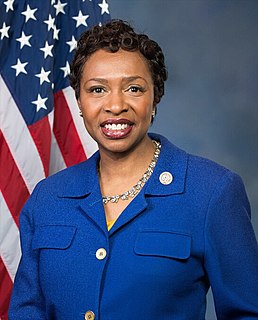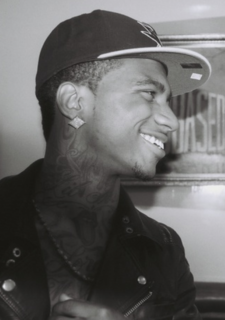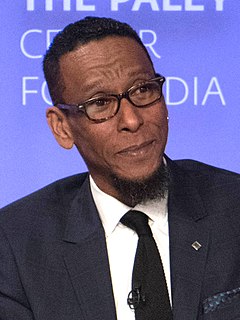A Quote by Harry Lennix
I'm one of those persons who think that watching black people suffer is not an idea of entertainment. I know a lot about African American history, which is just American history, it's always been very fascinating to me. The premise of the play is remembering and honoring those persons whose stories would never be taken into account.
Quote Topics
Related Quotes
As a historian of American and African-American religion, I know that the Trayvon Martin moment is just one moment in a history of racism in America that, in large part, has its underpinnings in Christianity and its history. Those of us who teach American Religion have a responsibility to tell all of the story, not just the nice touchy-feely parts.
There's no doubt that when it comes to our treatment of Native Americans as well as other persons of color in this country, we've got some very sad and difficult things to account for. I personally would want to see our tragic history, or the tragic elements of our history, acknowledged. I consistently believe that when it comes to whether it's Native Americans or African-American issues or reparations, the most important thing for the U.S. government to do is not just offer words, but offer deeds.
Black History is enjoying the life of our ancestors who paved the way for every African-American. No matter what color you are, the history of Blacks affected everyone; that's why we should cherish and respect Black history. Black history changed America and is continuing to change and shape our country. Black history is about everyone coming together to better themselves and America. Black history is being comfortable in your own skin no matter what color you are. Black history makes me proud of where I came from and where I am going in life.
As an African-American, as a woman, I think that I've been sensitized to the way in which history privileges the white male and the way in which certain aspects of history, the things that we are taught in school, the things that are handed down, never, never entered the picture though they might have been very important.
As an African-American, as a woman I think that I've been sensitized to the way in which history privileges the white male and the way in which certain aspects of history, the things that we are taught in school, the things that are handed down never, never entered the picture though they might have been very important.
You know, when Trayvon Martin was first shot I said that this could have been my son. Another way of saying that is Trayvon Martin could have been me 35 years ago. And when you think about why, in the African American community at least, there's a lot of pain around what happened here, I think it's important to recognize that the African American community is looking at this issue through a set of experiences and a history that doesn't go away.
I'm not against knowing the history of white people in the U.S. - that's not the point. The point is that there's so much greater history. We don't know about Native Americans. Very basically, we don't know that much about African American history, except that they were enslaved. You only get bits and pieces.
When I was a kid, I'd go to the African-American section in the bookstore, and I'd try and find African-American people I hadn't read before. So in that sense the category was useful to me. But it's not useful to me as I write. I don't sit down to write an African-American zombie story or an African-American story about elevators. I'm writing a story about elevators which happens to talk about race in different ways. Or I'm writing a zombie novel which doesn't have that much to do with being black in America. That novel is really about survival.
When I looked at 'Dear White People,' you have four African-American students who are all very different and who are trying to figure out who they are. They're dealing with identity issues and crises. That is exciting to me, to see African-American young people on a page, on a screen, who are so diverse and whose stories are all so different.
More people are on food stamps today because of Obamas policies than ever in history. I would like to be the best paycheck president in American history. ... And so Im prepared if the NAACP invites me, Ill go to their convention and talk about why the African-American community should demand paychecks and not be satisfied with food stamps.


































